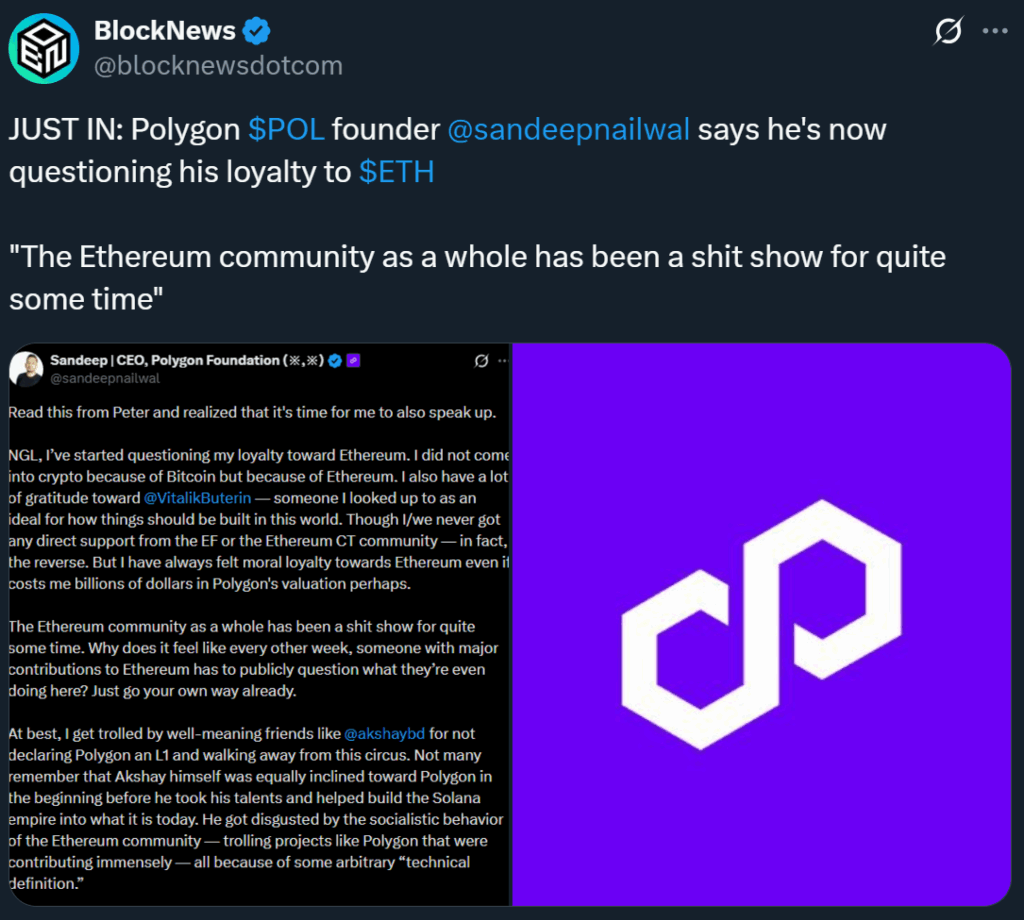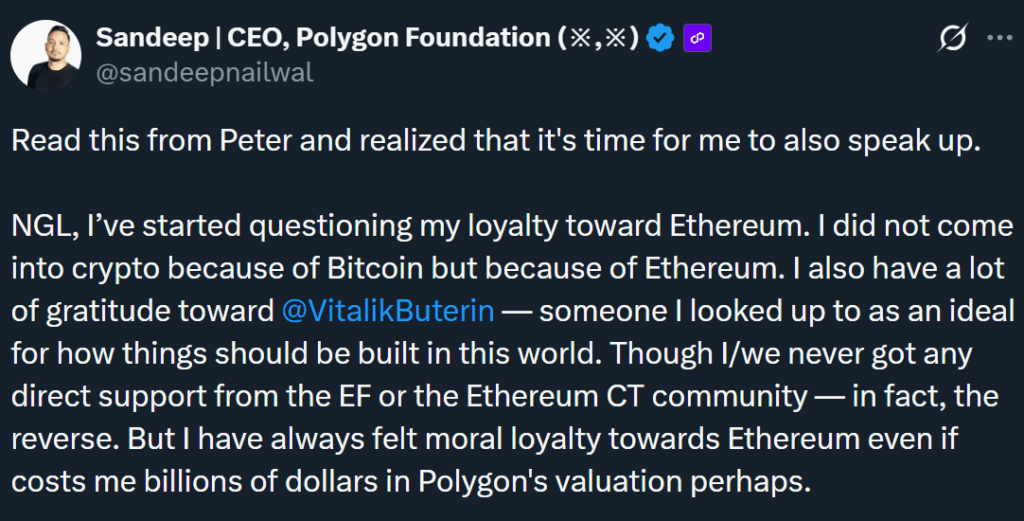- Sandeep Nailwal, co-founder of Polygon, criticized the Ethereum community, calling it dysfunctional and dismissive.
- He hinted that Polygon might move toward becoming a fully independent Layer 1 network.
- The controversy exposes growing fractures within the Ethereum ecosystem over recognition and collaboration.
Sandeep Nailwal, co-founder of Polygon, has openly questioned his loyalty to Ethereum, calling its community a chaotic mess. His words cut deep into the heart of the crypto ecosystem, stirring debates and raising eyebrows. So, let us take a closer look at why this matters and what it signals for the future of Ethereum and Polygon.

Who is Sandeep Nailwal?
Sandeep Nailwal is a prominent entrepreneur and blockchain developer, best known as the co-founder of Polygon, one of the leading Layer 2 scaling solutions for Ethereum. He has played a pivotal role in driving mainstream adoption of Ethereum-based projects, particularly across Southeast Asia, Latin America, and other emerging markets. In addition to this, Nailwal is known for his outspoken nature and willingness to challenge the status quo.
What Happened?
In a recent post, Nailwal publicly shared frustration with the Ethereum community, describing it as dysfunctional and dismissive of contributors like Polygon. He praised Vitalik Buterin but slammed the Ethereum Foundation and community for years of neglect, trolling, and exclusion.

Nailwal also highlighted the lack of support, recognition, and fair treatment for Polygon despite its massive role in onboarding developers and users to the Ethereum ecosystem. Overall, his statement signals growing tension and hints at the possibility of Polygon asserting itself as an independent Layer 1 network if the community continues to ignore its contributions.
Why Is This Important?
This is not just a rant. Polygon represents a massive portion of Ethereum activity globally, and its discontent highlights structural issues in how contributions are valued and recognized. If Polygon rebrands as an L1, it could trigger a domino effect across the Layer 2 landscape, forcing projects to rethink their allegiance and positioning. Investors, developers, and users should pay attention, as the outcome could shift market dynamics, influence L2 adoption, and alter the balance of power in the Ethereum ecosystem.
What’s the Reaction Like?
Reactions have been mixed. Critics claim Polygon has its own flaws and that Nailwal has no room to complain, while supporters urge him to take a decisive stance and pivot fully to a standalone L1. The debate underscores a larger sentiment of frustration with Ethereums community dynamics and the persistent struggle for recognition faced by projects like Polygon.














